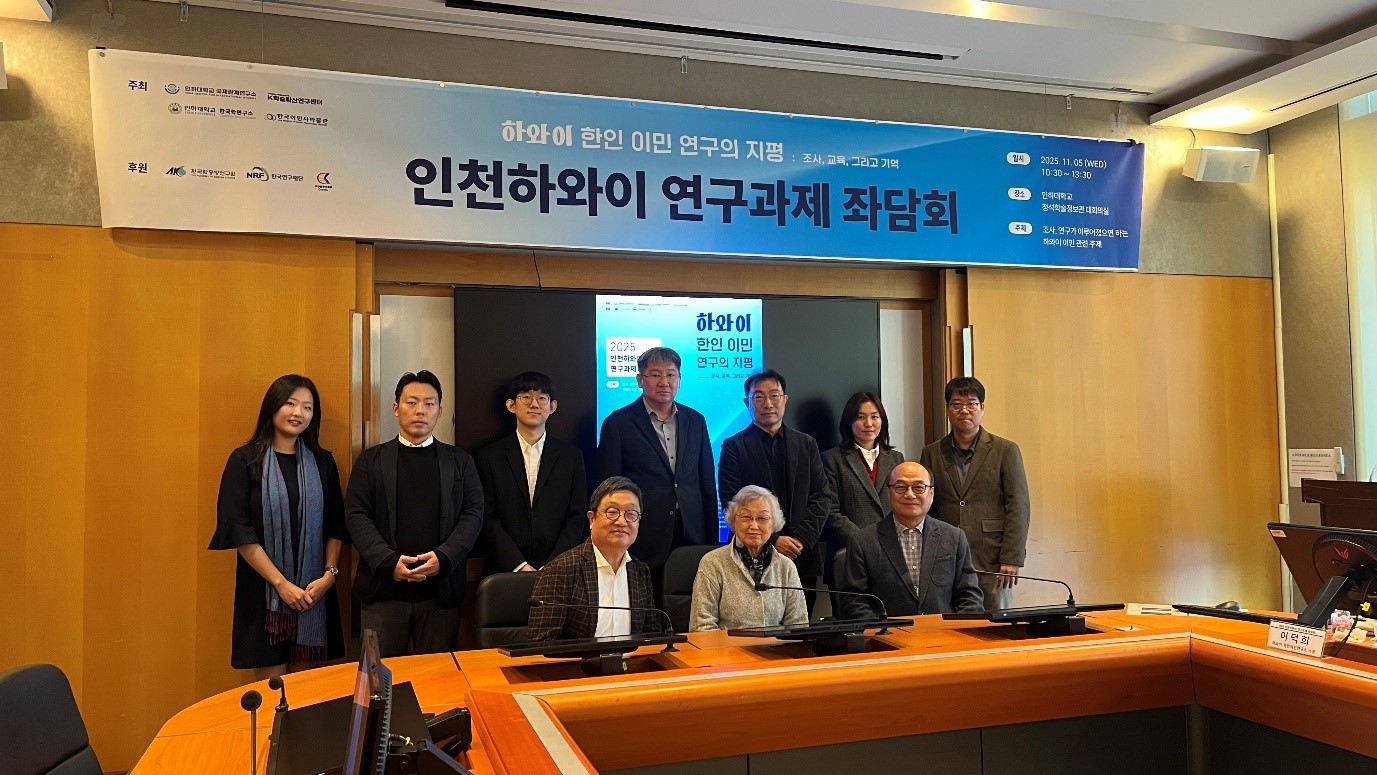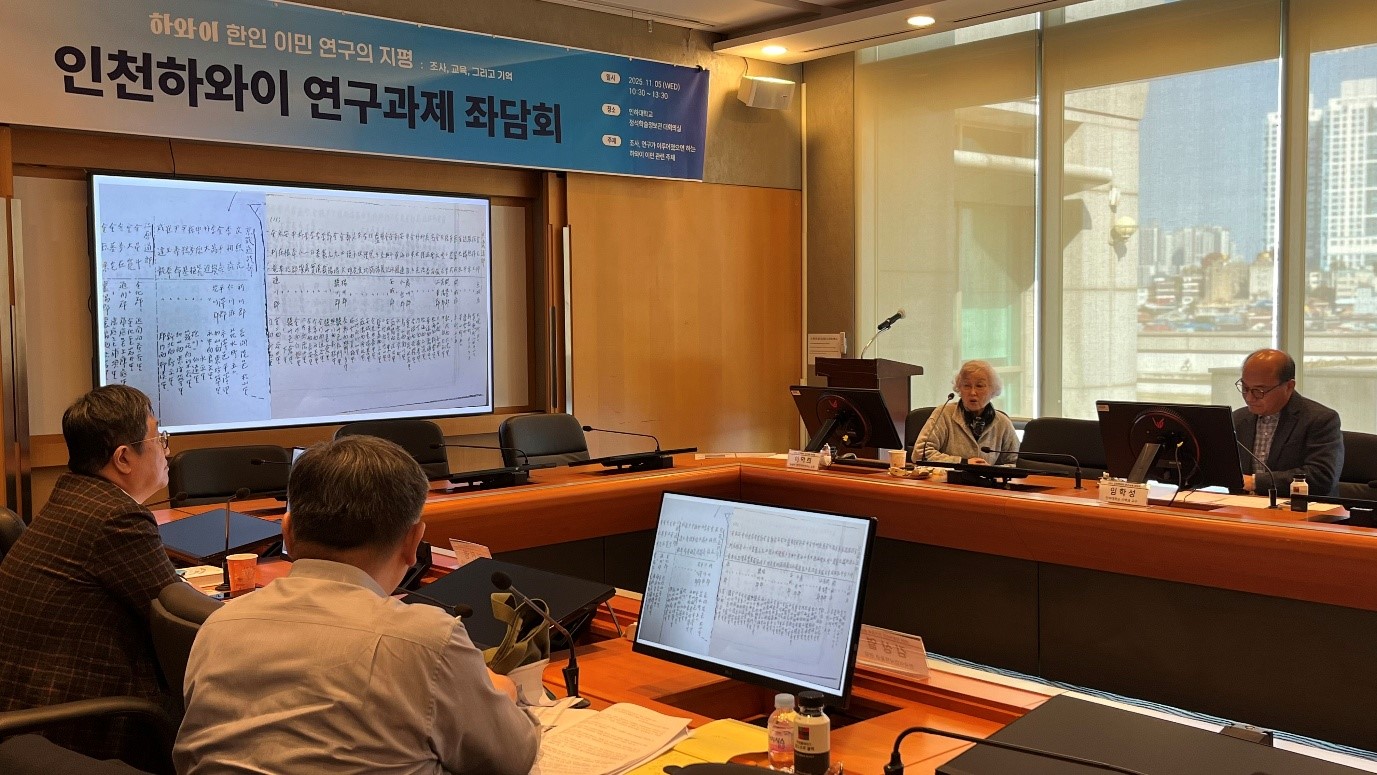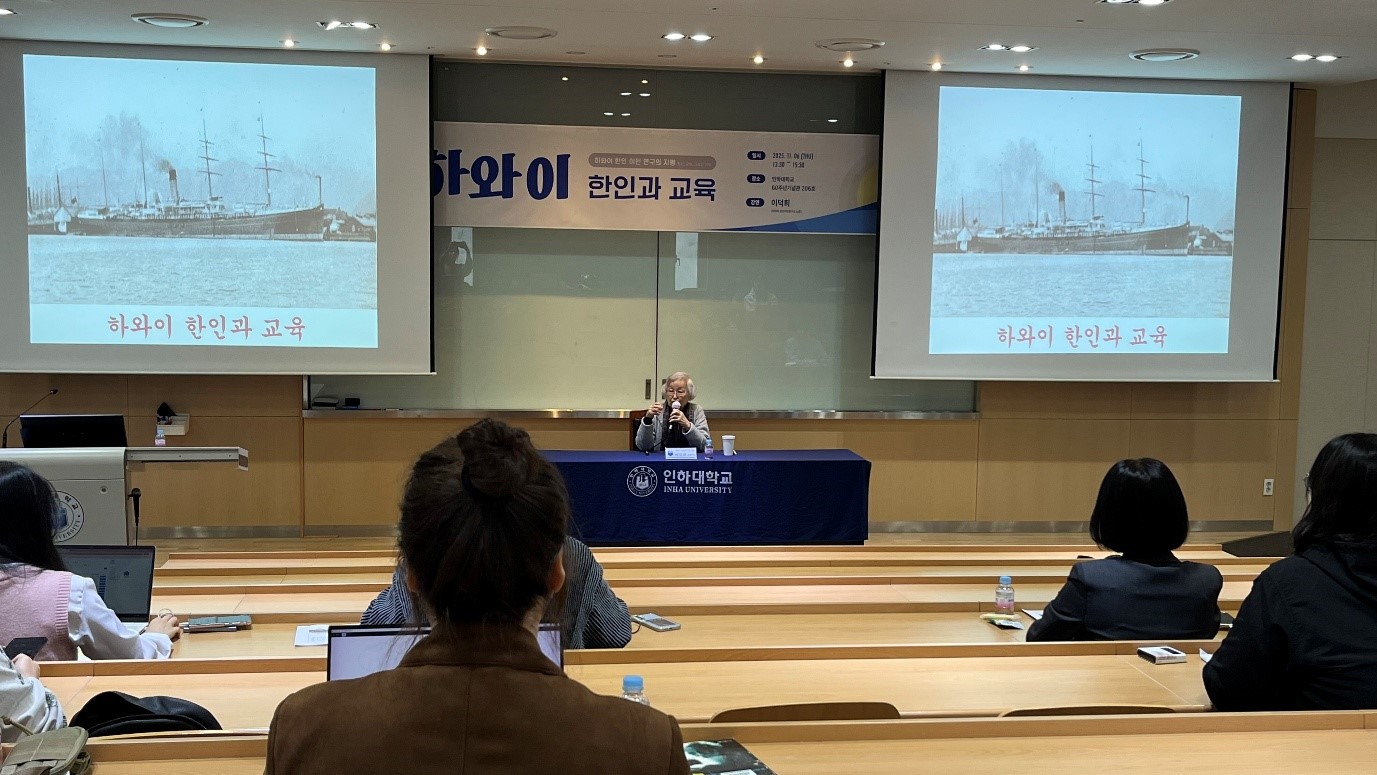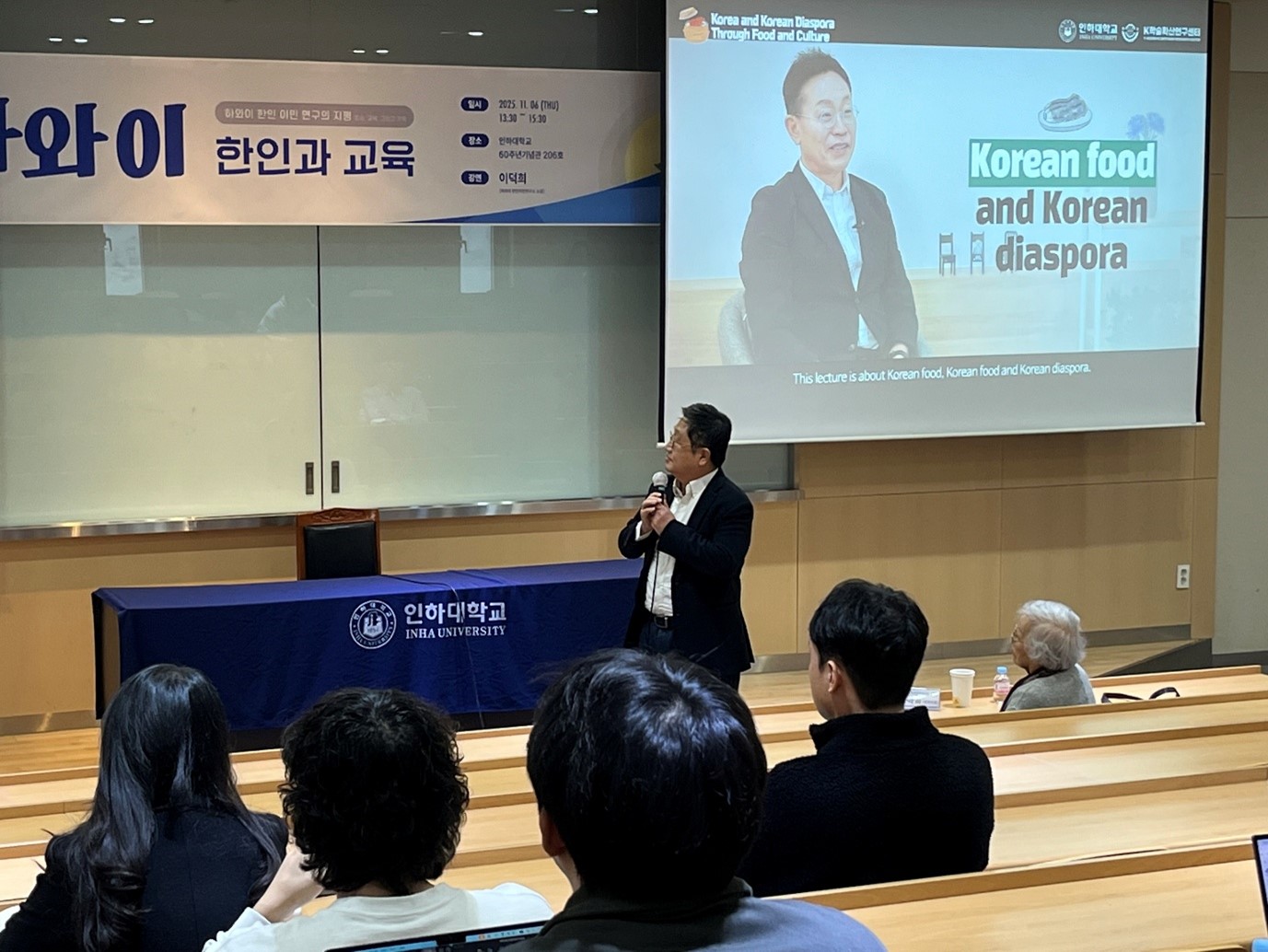International Conference
International Conference
Special lecture and Roundtable with Director Duk Hee Lee of the Hawaii Korean Immigration Research Institute
- Created 2025.11.10
- Presenter2025-11-05
- Views218
The Inha Center for International Studies, the Inha Institute of Korean Studies, and the Museum of Korean Emigration History co-hosted a two-day academic program on November 5–6, 2025, inviting Director Duk Hee Lee of the Hawaii Korean Immigration Research Institute. Participants revisited the historical significance of education and community building in overseas Korean history and reinterpreted its connection to Inha University’s founding philosophy and historical lineage.

On November 5, an academic roundtable was held at the Grand Conference Room of the Jungseok Memorial Library at Inha University, with researchers from the Center for International Studies, the Institute of Korean Studies, and the Museum of Korean Emigration History in attendance, along with members of the KBS Incheon News Bureau.
During the session, Director Lee presented valuable primary sources that she had collected over several decades in Hawaii. She emphasized the need to shed new light on diverse themes in Korean Studies, including education, religious life, and wartime participation among Korean immigrants in Hawaii.
Discussions focused on the potential for collaborative research on topics such as ‘2nd generation Koreans who served in the U.S. military government’, ‘Honouliuli Internment Camp’, and ‘records of Korean community schools and churches in Hawaii’.

Researchers from Inha University and the Museum of Korean Immigration History also exchanged views on ways to secure and utilize additional archival materials and oral histories, reaffirming the historical and academic continuity between Incheon and Hawaii.
The roundtable served as a meaningful platform for assessing the current state of research on Korean immigration to Hawaii and for seeking concrete directions for future academic cooperation.

The following day, November 6, a special lecture titled “Koreans in Hawaii and Education” was held at Room 206 of the 60th Anniversary Memorial Hall at Inha University. In her lecture, Director Lee vividly traced how early Korean immigrants who had left Incheon Port for Hawaii established schools and social organizations—centered around the Methodist Church—to solidify their communal identity and social foundation.
Through detailed examples such as the ‘Korean Boarding School’, ‘The Korean Girls’ School’, and the ‘Korean Christian Institute’, she explained how the educational spirit of the immigrants went beyond the transmission of knowledge to encompass national education, independence activism, and women’s education. She further emphasized that this educational tradition has continued to influence the development of Korean Studies in both Korea and the United States, linking directly to the founding philosophy of Inha University.
 |
 |
The lecture drew a large audience of Inha University students, faculty, and local researchers, who showed great enthusiasm and engagement. Students expressed deep empathy with the theme of “self-reliance and community formation through education”, actively participating in the discussion throughout the event. During the Q&A session, questions covered topics such as the teaching methods of Korean schools in Hawaii, women’s education movements, and the connection between these historical experiences and Inha University’s founding background, creating an atmosphere of lively academic exchange.

In addition, the event included a brief introduction to the K-Academic Diffusion Research Project currently being carried out by the Inha Center for International Studies, along with an overview of the K-MOOC Korean Studies courses. Through this, participants gained a broader understanding of the global dissemination of Korean Studies and its intersection with overseas Korean history, while showing strong interest in Inha University’s academic vision and direction for global engagement.

By revisiting how the educational spirit of the Hawaiian Korean community aligns with Inha University’s founding ideals, the event reaffirmed that the value of “community building through education” remains a relevant and enduring academic theme today.
Furthermore, the strong participation and enthusiastic responses from students demonstrated that the global diffusion of Korean Studies is not only a matter of academic exchange but also a process that inspires historical awareness and intellectual curiosity among younger generations.
The two-day program thus served as a meaningful occasion where history, scholarship, and education came together to illuminate the enduring transnational legacy of Korean migration and learning.



